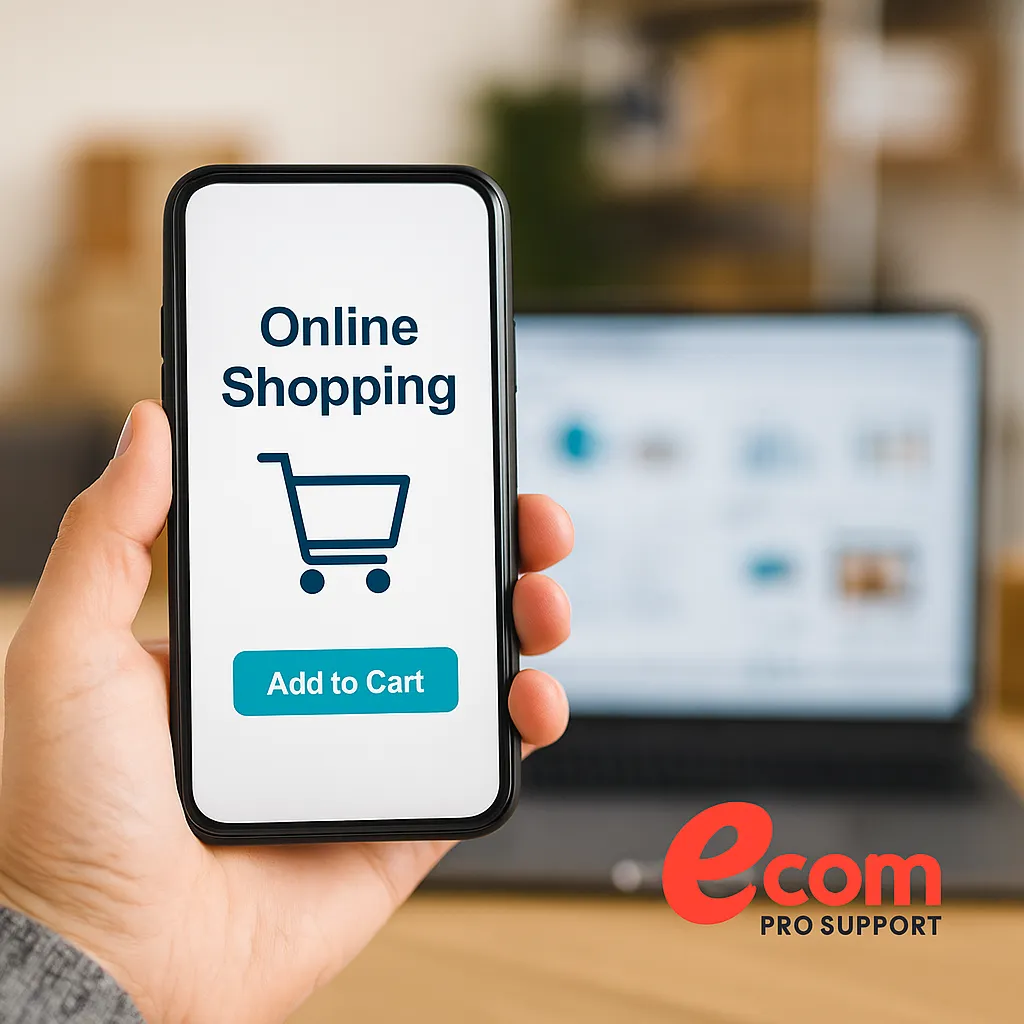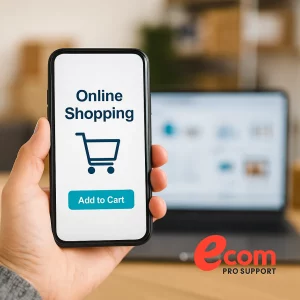What Does eCommerce Mean? A Beginner’s Guide to Online Business

The word eCommerce is everywhere — from social media to small business websites. But what does it actually mean? Whether you’re new to the term or curious about making it a career, this blog breaks down eCommerce in simple, actionable language, covering common questions people ask.
What is e-commerce in simple terms?
E-commerce stands for electronic commerce — the act of buying or selling products or services over the internet. It includes everything from online stores like Amazon to digital subscriptions, virtual services, and even selling on social media platforms.
In other words, anytime money is exchanged for goods or services online — that’s eCommerce.
What does it mean when someone says they do ecommerce?
When someone says they “do eCommerce,” it usually means they run an online business. This could be selling products on their own website, dropshipping, working on platforms like Amazon, Etsy, or Shopify, or providing eCommerce-related services like marketing, fulfillment, or store setup.
It’s not just owning a store — it’s managing the entire digital sales operation
What is eCommerce as a job?
Working in eCommerce can mean many roles: digital marketer, product manager, store owner, SEO expert, customer support rep, warehouse manager, or even virtual assistant. Jobs exist both in companies and as freelancers.
E-commerce is now a full-fledged career field with roles in sales, tech, marketing, and operations — often remote and in high demand.
Common Jobs in eCommerce
| Job Title | What They Do |
| eCommerce Manager | Runs an entire online store or brand |
| Amazon Specialist | Optimizes listings and ads on Amazon |
| Shopify Developer | Builds & customizes Shopify stores |
| Product Photographer | Takes photos for online listings |
| Digital Marketer | Drives traffic through ads or SEO |
Which platform is best for eCommerce?
The best platform depends on your goals. Shopify is great for beginners and branded stores. Amazon offers built-in traffic but has high competition and fees. Etsy is ideal for handmade goods, while WooCommerce works well with WordPress.
Each has trade-offs in cost, control, scalability, and ease of use.
Quick Comparison:
| Platform | Best For | Pros | Cons |
| Shopify | Branded stores | Easy setup, scalable | Monthly fees |
| Amazon | Product-based businesses | Built-in audience | High competition, fees |
| Etsy | Creators/artists | Niche buyers | Limited scalability |
| WooCommerce | Bloggers & WP users | Fully customizable | Tech-heavy setup |
Is eCommerce good or bad?
E-commerce isn’t inherently good or bad — it’s a tool. For many, it creates freedom and opportunity. But it also comes with challenges like intense competition, tech complexity, and customer expectations.
Like any business model, success in eCommerce depends on strategy, consistency, and learning.
Final Thoughts: Should You Explore eCommerce?
If you’re interested in starting an online business, working remotely, or building digital skills, eCommerce offers massive opportunities. It’s no longer just about buying online — it’s about creating, optimizing, and managing digital experiences that convert.
Need help launching your eCommerce journey?
At Ecom Pro Support Ltd, we help beginners and professionals launch or grow their tech careers with mentorship, hands-on projects, and career guidance.
Let’s Talk – Free Discovery Session
About the Author
Muhammad Hamid Nazir
Co-Founder & CTO, Ecom Pro Support Ltd
With over a decade of experience in business intelligence, data automation, and cloud solutions, Hamid helps brands and agencies unlock powerful insights through customized dashboards and real-time analytics tools.



